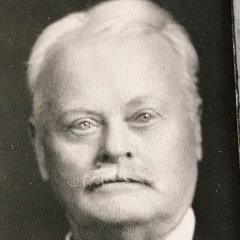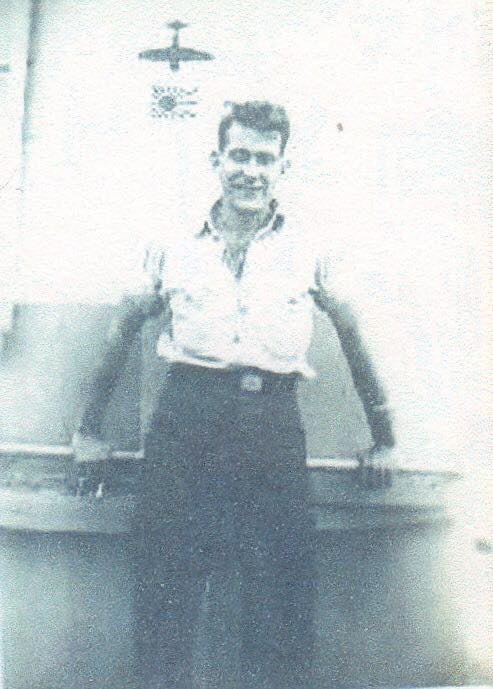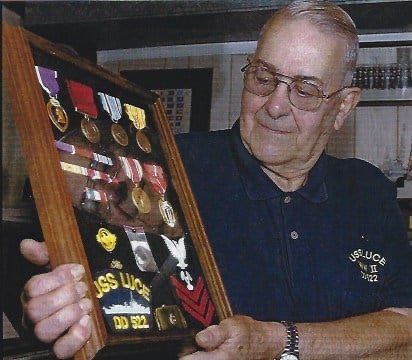-
Posts
2,869 -
Joined
-
Last visited
About Cyrus Cassidy #45437
- Birthday 01/01/1976
Previous Fields
-
SASS #
45437
-
SASS Affiliated Club
Colorado Cowboys
Profile Information
-
Gender
Male
-
Interests
SASS, IPSC, IDPA, hunting, coin collecting, baseball.
Recent Profile Visitors
Cyrus Cassidy #45437's Achievements

SASS Wire Vet (1/1)
3.3k
Reputation
-
So I've been getting into ham radio quite heavily over the past six months and have ventured into HF operations (I got my general license at the same time as my technician). Call sign, KF0ROC. For HF, I'm using an Icom 7300. I installed a Comet CHA-250hd vertical antenna outside on the corner of the property with a tilt base made by DX Engineering. The tilt base will allow me to lay the antenna down during the crazy wind storms we get. I even landscaped around the antenna and its associated ground rod so that mowing is easy. Anyway, I have had QSOs all over the country, into Canada, and even Russia. I hunt POTA activations and have earned the bronze, silver, and gold hunter awards. I have heard Australia, New Zealand, Costa Rica, and a few other DX stations but couldn't break through the pileup. But I really want to improve my DX game. At this point I'm willing to put up a tower. Assuming I have a tower installed (let's say 40 or 50 feet), what directional antennas should I consider? How does a rotator work? Anything else to consider?
-
I have this wild hair to re-create Dr. Robert Goddard's prototype, kerosene burning rocket.
-
Pard, the Malibu is a Chevy and the 302 is a Ford engine. I think you mean 305. My first car was a 1978 Malibu with the 305.
-
I'll just say this: In my law enforcement career I probably wrote 5000 speeding tickets. However, I distinctly recall 3 tickets for driving too slowly (Colorado has a minimum speed). Two of the three were also drunk drivers. The third was a colossal idiot.
-
Thanks pard, I found him on page 15. There is a book "Diary of a Destroyer" that you also linked to. My grandfather gave a copy of that book to all of his grandchildren along wiht a copy of a letter he wrote on behalf of the sailor who saved him. As a result of my grandfather's campaign on his behalf, the sailor was awarded the Bronze Star in the early 1990s, almost 50 years after the event.
-
No, not common. It was probably, "that d@%* horse took off before I wanted him to."
-
My grandfather was wounded and his ship sunk off the coast of Okinawa during this battle. He was on the USS Luce, DD 522. Kamikazees struck the magazine, causing a large explosion that shredded his leg. He was bleeding profusely, and some sailors put a tourniquet on him and strapped him to a stretcher. They were carrying him when the order was given to abandon ship; it was going down. The sailors dropped him and abandoned ship, leaving him for dead. He was tied to the stretcher and unable to move as the ship listed heavily and sunk farther and farther into the water. When the ship was at about a 45 degree angle, a sailor climbed onto the deck where he was lying and cut him loose from the stretcher. He put a life vest on my grandfather and tossed him into the ocean. The ship sunk completely a few minutes later. Then the Japanese aircraft flew passes back-and-forth over the survivors, strafing them with machinegun fire to kill the survivors. My grandfather used to talk about having the bullets pass by on either side of him. He was not hit, but he remained in the water awaiting rescue for three days, during which time the sharks were eating survivors. He survived the blast, the sinking, the machinegun fire, and the sharks. Upon his rescue, he was evacuated to a hospital in Norman, OK and treated for several months. He had been engaged to my grandmother before the war, so she drove from Iowa to Oklahoma and met him at the hospital, where they were married. They remained married until his death in 2010. She followed him in death in 2014. His leg did not have to be amputated, but he required a metal brace that started at his shoe and went all the way up his leg. He walked with a cane and a limp, and every few years more metal would work its way to the surface and it would have to be surgically removed. He kept a Mason jar of metal that had been removed from his leg. On December 7, 1941, my grandfather, who had recently graduated from high school, was a plumber's apprentice in Independence, Iowa. He planned to become a journeyman and marry my grandmother, but the war changed everything. After his injury, he could not pursue any type of blue collar work so he used the GI Bill to go to Iowa State University and become a civil engineer. He was the first person in my family to go to college, and he later spent an entire career with the DOT and helped to design the interstate system in Iowa. Walking was very painful for him, and come to think of it, so was sitting. He hurt pretty much all the time, but I never heard him complain. He used to tell me, "Every day since that day was a gift from God."
-

Finance or Buy?
Cyrus Cassidy #45437 replied to Father Kit Cool Gun Garth's topic in SASS Wire Saloon
Debt = slavery. -

geocaching, ham radio, and horseback riding
Cyrus Cassidy #45437 replied to Cyrus Cassidy #45437's topic in SASS Wire Saloon
I could do POTA or SOTA from horseback, but there is no geocaching in there. -

geocaching, ham radio, and horseback riding
Cyrus Cassidy #45437 replied to Cyrus Cassidy #45437's topic in SASS Wire Saloon
Uhhhh...handheld radios, pard. -
Mrs. Cassidy and I went out geocaching from horseback, and it was rather fun. Geocaching has a lot of games and contests associated with it, and so does ham radio. It got me to thinking I should develop a geocaching from horseback with ham radios game. Any ideas?
-

Pete Rose and Shoeless Joe reinstated
Cyrus Cassidy #45437 replied to Rye Miles #13621's topic in SASS Wire Saloon
Probably true. However, the hall of fame has a long and well established history of letting in terrible human beings (a murderer, a KKK member, etc.) based solely on their on-field performance. -

Tales From Behind the Plate
Cyrus Cassidy #45437 replied to Cyrus Cassidy #45437's topic in SASS Wire Saloon
Nothing has changed about the school. It still produces a lot of hardened gang members. But the coach obviously cares about his job and about those boys. -
So there I was... ...my junior college season has come to a close; I have not yet earned my way into post season umpiring (and the vast majority of their post season umpires are NCAA DI and DII umpires). But high school has about another week left. This was my second-to-last game of the regular season before post season kicks off, and yes, I will be umpiring post season at the high school level. Anyway, although this was varsity level competition, both teams were terrible and we knew it before we even showed up. Reputations are what they are. I have not umpired either team in several years, and all the coaches and players are new people since I have seen them last (new umpiring administration -- their new philosophy is that EVERYONE works trash games, as well as sub-varsity, instead of leaving those to the new guys. I like this approach. You still have to earn your way to varsity and key games, though, but I get enough of those to stay happy ). Truth be told, I have a lot of misgivings about working trash games because the people tend to be awful; it's the umpires' fault that their team cannot pitch, catch, throw, field, or hit. The coaches argue vehemently over stupid things about which they have never bothered to read a rule. Parents say nasty things from the bleachers. And, of course, the drunk guy in the 8th row has a much better view of the strike zone than we do. To make matters worse, it's been nearly 9 years since I left the law enforcement profession, but I knew the home school very well. It was in the ghetto where I spent most of my career. The last time I set foot on school grounds, I had an arrest warrant and several armed colleagues with me, hunting a sixteen year-old kid who had brutally beaten and raped a young woman. This school produces some of the most hardened gang members in the city, rivaled only by one other school on the opposite end of the ghetto. So, going into the game, I could only imagine the terrible things that were going to happen, or being confronted by an armed thug on the way back to my car. I was worried about getting shot or stabbed, and now, no longer being in law enforcement, was not allowed to carry any means with which to defend myself onto school grounds. To make matters worse, my partner has a reputation. He is an NCAA DII umpire, and is known for "picking boogers" (enforcing every rule to the letter of the law whether it impacts the game or not, and to the chagrin of everyone), being hostile to players and coaches, and bating them into saying or doing things that warrant an ejection. In fact, last fall, I saw him eject a player and a coach from an off-season college scrimmage. Oh great. I had the plate. At the plate meeting, both coaches were cordial and polite. But of course they were; they always are at the plate meeting until the second something goes against them. Then it's like someone flipped a switch and they let their arsehole show. We got the game going, and it was pretty easy. Ball/strike, safe/out, fair/foul. There were no controversial plays or rare events to adjudicate, just standard baseball. Throughout the entire game, the coaches and players from both teams addressed me as "sir," said, "thank you," and demonstrated exceptional sportsmanship. The drunk guy in the 8th row thought I should call a strike when the pitch skimmed over the batter's shoelaces, but other than that, I heard nothing other than cheering for their kid. A few times, the coaches wanted a rule explanation on a call, but they asked politely and accepted the ruling with no drama. It was both teams' final game of the season, so they were doing things to honor their seniors. The pitcher of the visiting team earned his 100th career strikeout and saved the baseball. The SS from the home team hit a two-run homer, and I told the coach to sent someone out there to retrieve his baseball. It wasn't high quality baseball, but both coaches have obviously invested a significant amount of energy into teaching these kids how to be men.
- 4 replies
-
- 10
-

-











